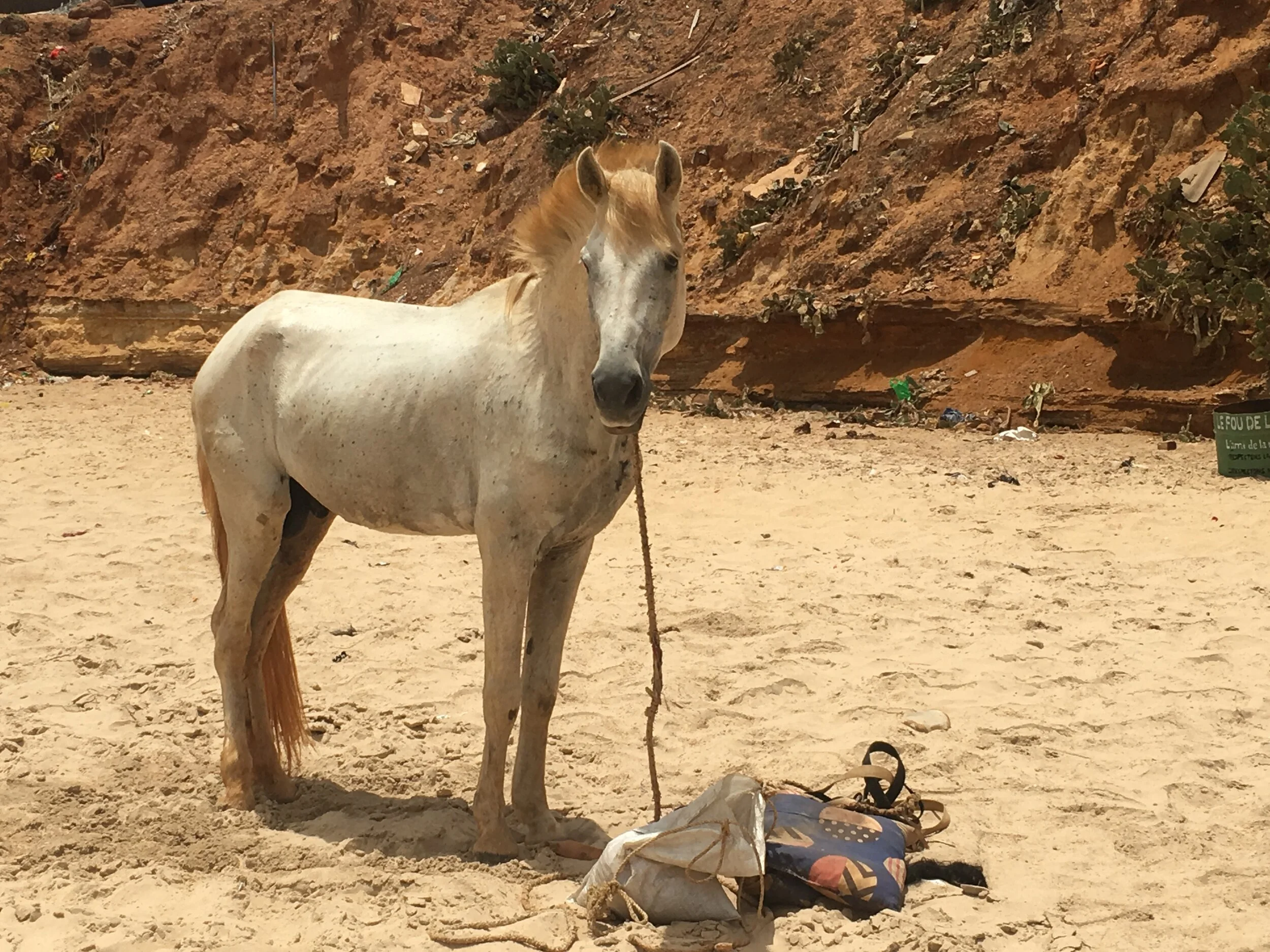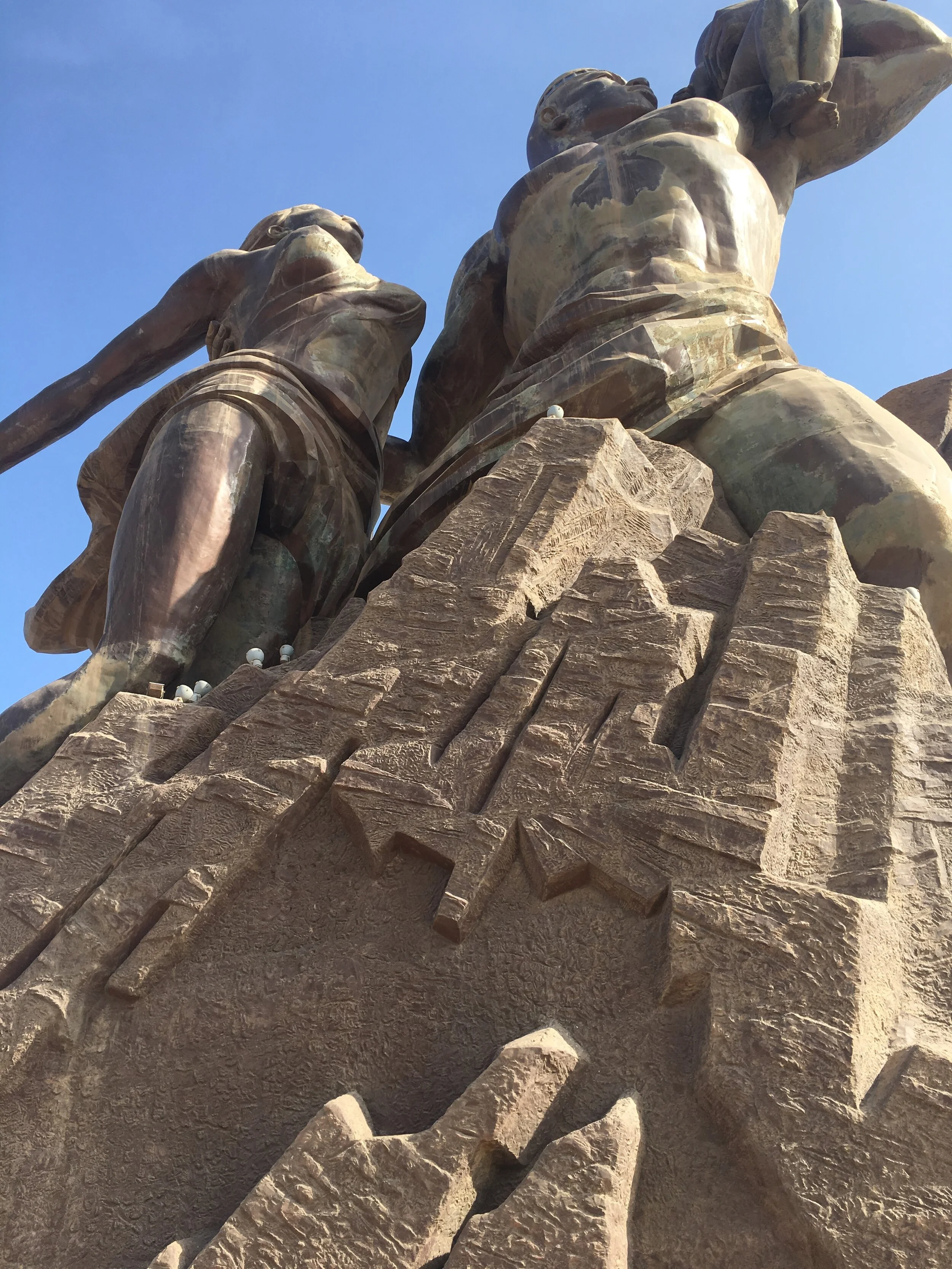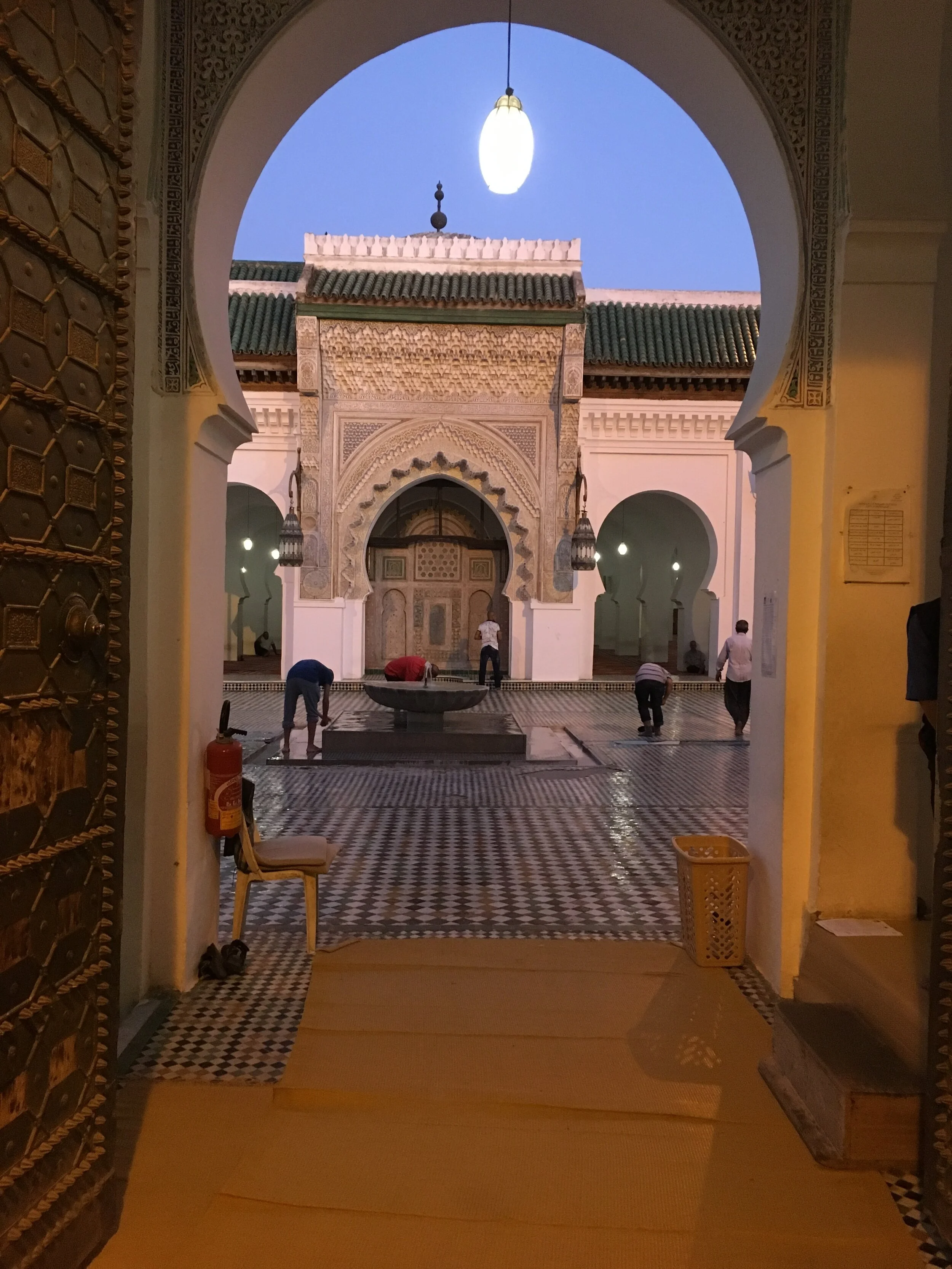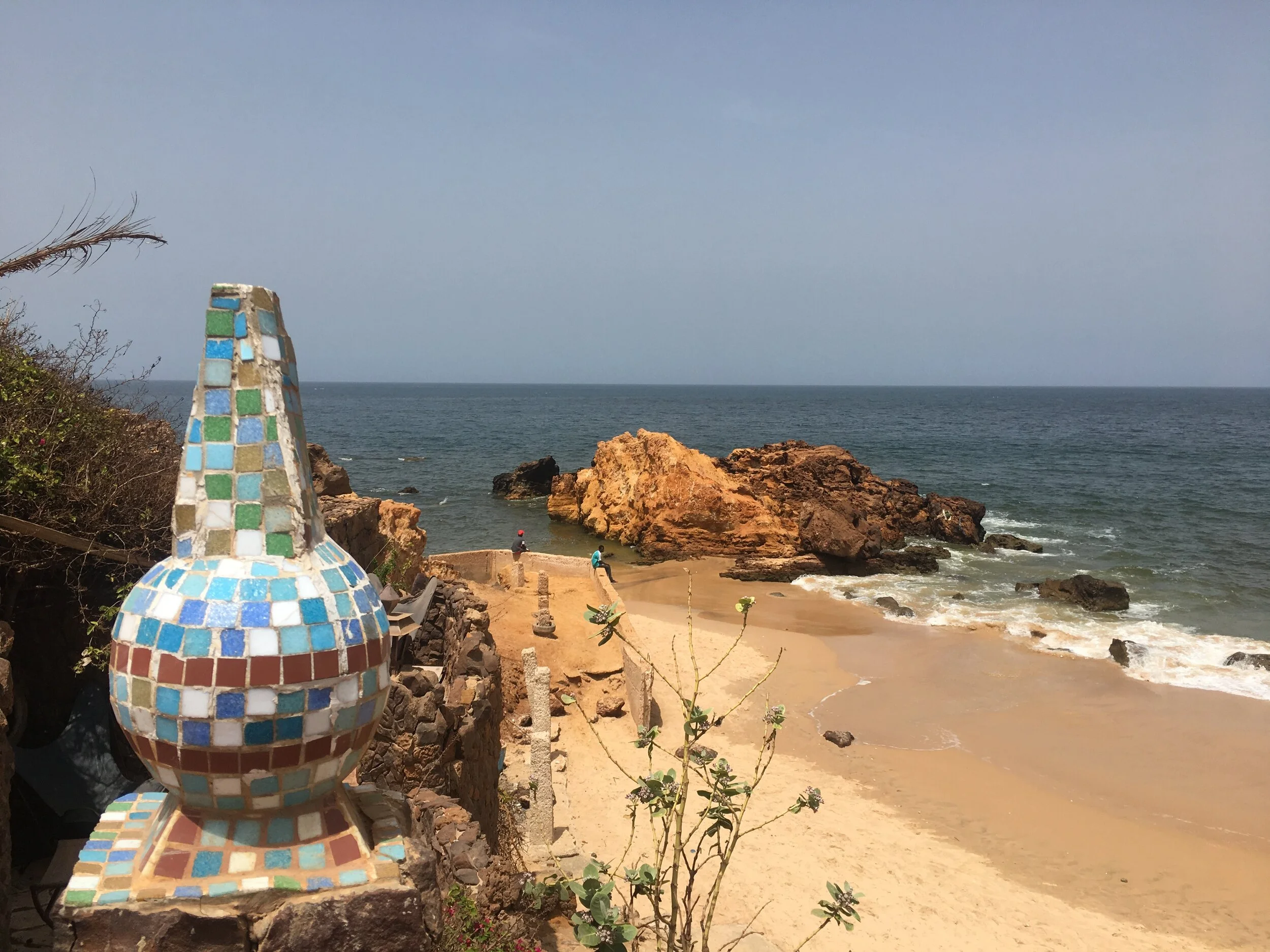Portugal Stop Over
TAP airlines is Portuguese company that offers a stop over service to Lisbon. We decided to spend 3 days in Sintra, a town 30km and two easy train lines from Lisbon.
Castles
Sintra has 9 palaces in various states of refurbishments, most of which are run by the Parques de Sintra and preserved as World Heritage sites.
The Moorish Palace
The hike up to the Moorish Palace was just as beautiful as the view from the palace walls.
My favorite of the palaces we visited, the Moorish Palace is perched on top of a forested hill and while the tour bus companies issued warning that the hike was too steep and dangerous to attempt, we made it up the well-marked trail in an hour including the detour we took for trail maintenance. The Moorish Palace site had been habited since Neolithic times and was a Muslim castle when it was built between the 8th and 9th centuries. The views of Sintra to Lisbon from the castle walls are impressive and from my bedroom window at the AirBnB we stayed in near the Natural History Museum, I could see the ruins illuminated against the starry sky.
Pena Palace
Pena is a beautiful former monestary-turned-summer palace.
On a ridge opposite of the Moorish Castle, which art collector King Ferdinand II used as a contemplative garden, sits the royal summer palace called Pena, which Ferdinand rehabbed from its original use as a monetary. The bright yellow and red palace in the clouds graces the cover of many a Portugal guide books. The palace is covered in ornate tiles and fully furnished with period furniture, dishes and bedding. The walls are ceilings are ornately painted with tromp l’eoi murals, parquet floors and beautiful coffered ceilings. A fountain in the courtyard of the former cloisters is fed from the gargoyles on the roof. It’s a spectacular piece of architecture and incredible to see it full of 19th century things.
Monserrate
Monserrate is an elegant symmetric palace with a lot of eastern influence in the design.
Monserrate was a privately held mansion by Englishman Sir Francis Cool until the second World War prevented his family from ever returning. The romantic style mansion takes designs from the Alhambra and contains artifacts pilfered from Indai. It’s surrounded by impressive gardens with themes like roses, Mexico and ferns. The grounds used be open to the public and during WWII, espionage and counter espionage was common during dinner parties. The house was beautiful and used to house a huge collection of art that was sold off before the Portuguese park service obtained the land and renovated the property.
Regaleira
The mysterious well was built into the hillside and connects a series of caves beneath the Regaleria grounds.
Regaleria is the last of the four castles we visited and it was by far the strangest. The Peewee’s Playhouse of 19th century indulgence, the grounds to this castle (which was a private residence not a royal house) has a plethora of oddities. A 5 story spiral ramp with niches was made to read tarrot cards and at the bottom, a maze of grottoes take visitors to a waterfall, another circular staircase, and out into a cave. A chapel, various towers and a greenhouse are built into the steep hill that rises up behind the main house beneath both Pena and the Moorish castle. Regaleria is the one castle in Sintra that’s not run by the Park Service and the only one we couldn’t buy tickets online for. The cost to enter is 8 Euros but I paid 5 Euros with an educator discount.
Eating and Drinking
O Tasco do Strauss was a quirky tapas bar run by the fabulous Peter Strauss.
The coffee shop on the main square had lovely brew and pastries. The national dessert of Portugal is Pastel de Nada, an egg tart originally made by monks in Lisbon in the 13th century. They are heavenly and I highly recommend them. The Portuguese culinary experience is rife with Tapas and hands down the best place to enjoy a board of cheese, meat, octopus salad and tuna pate is O Tasco do Strauss. The owner is personable and hilarious. He made us feel at home while introducing us to the Portugues sour cherry liquor called Ginja. The restaurant is a gem just off the beaten path from downtown Sintra. I wasn’t a huge fan of the port, thought since I was in Portugal, I did try two kinds.










